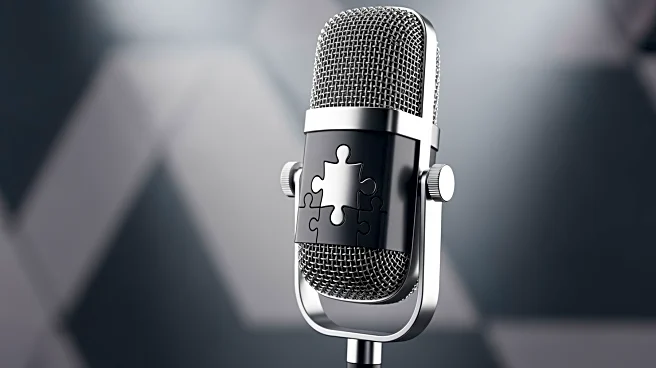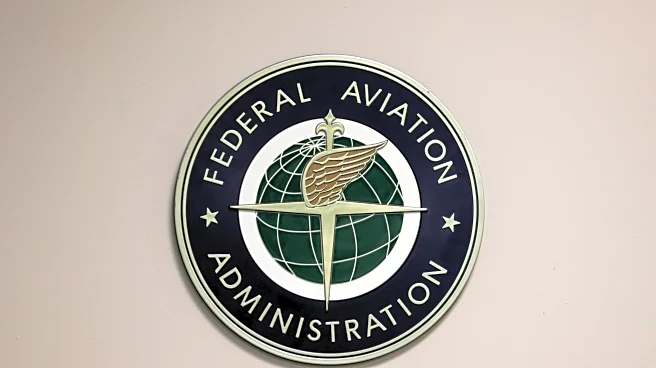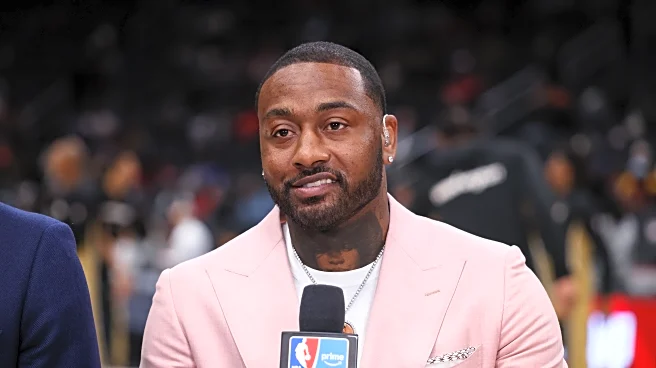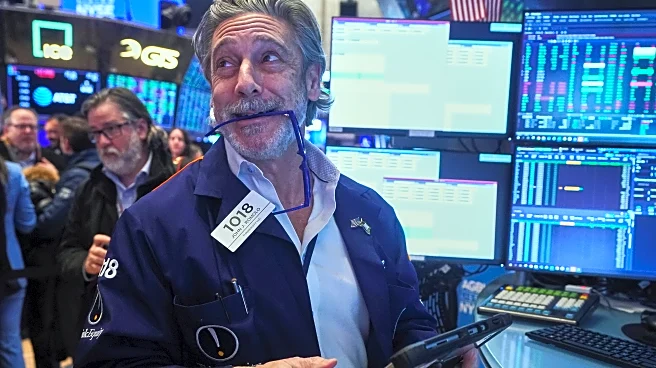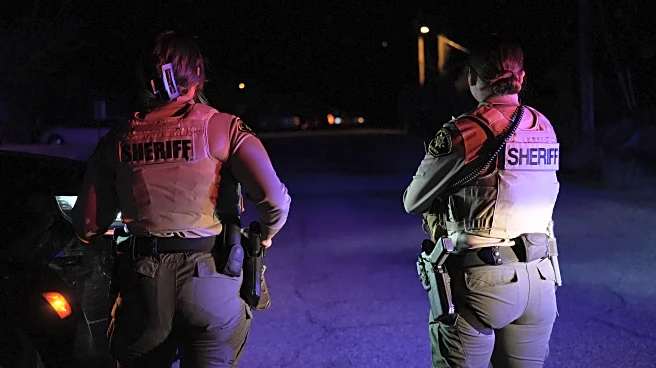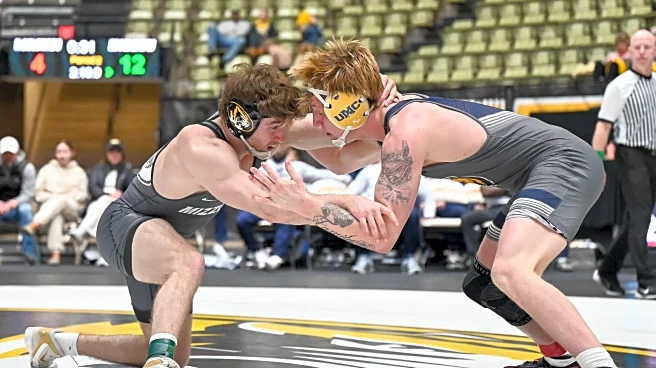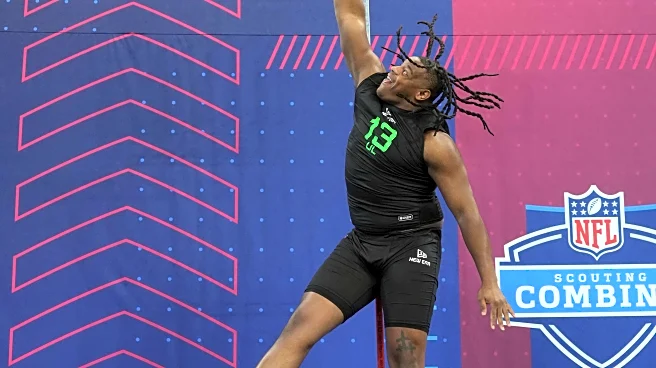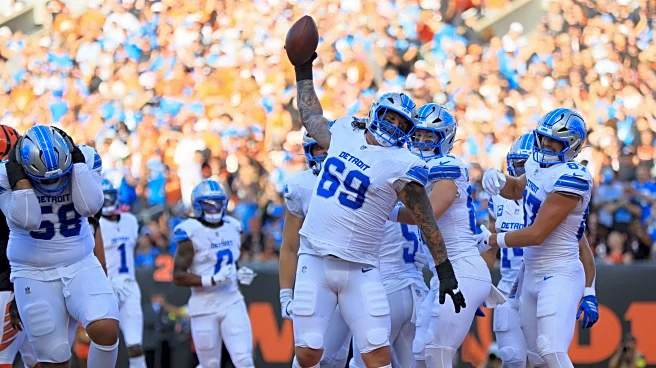What's Happening?
NPR's Weekend Edition featured a puzzle segment hosted by Ayesha Rascoe and Puzzlemaster Will Shortz, engaging listeners with a unique challenge involving state postal abbreviations. The segment included
Colorado Public Radio listener Kevin Tenney from Denver, who participated in solving puzzles where each answer was a familiar two-word phrase or name. The twist was that the first two letters of each word matched a state postal abbreviation. Examples included 'COmmon COld' for Colorado and 'FLash FLood' for Florida. The segment also revisited last week's challenge, which involved an anagram puzzle with automobile names and ethnic foods, and introduced a new challenge involving a famous actress's name.
Why It's Important?
This puzzle segment highlights NPR's commitment to engaging its audience through interactive and educational content. By incorporating state postal abbreviations into the puzzle, NPR not only entertains but also educates listeners about U.S. geography and state identifiers. Such segments can enhance cognitive skills and provide a fun way for listeners to connect with the broadcast. Additionally, these challenges foster community engagement by inviting listeners to participate and potentially win a chance to play on-air, thus strengthening NPR's listener base and promoting public radio's role in cultural enrichment.
What's Next?
Listeners are encouraged to submit their answers to the new challenge by Thursday, November 13 at 3 p.m. ET. Those whose answers are selected will have the opportunity to participate in future on-air puzzle segments. This ongoing engagement strategy is likely to continue, with NPR offering new puzzles and challenges that stimulate audience interaction and maintain listener interest. The segment's success may lead to more frequent interactive content, potentially expanding to include other educational themes or collaborations with local radio stations.
Beyond the Headlines
The puzzle segment reflects broader trends in media where interactive content is increasingly used to engage audiences. It underscores the importance of public radio in providing educational entertainment and fostering a sense of community among listeners. This approach can be seen as part of a larger movement towards participatory media, where audiences are not just passive consumers but active participants in content creation and dissemination. Such initiatives can enhance public radio's relevance in a digital age where audience engagement is crucial.
